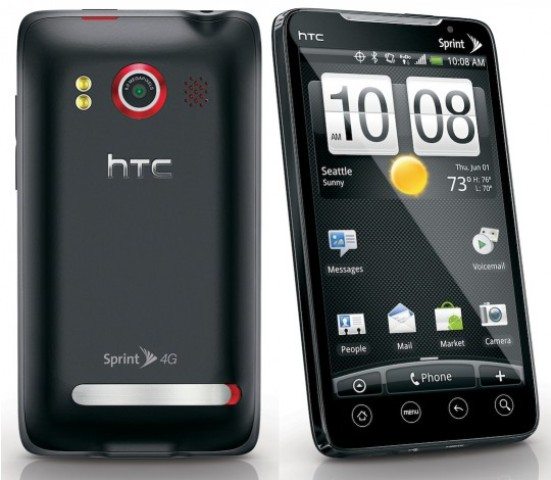While speaking to the Wall Street Journal, Sprint CEO Dan Hesse was quoted as saying, “we thought we would have more of a head start than we’ll end up having.” The CEO was referring to his company’s first-to-market 4G strategy, and more specifically about their industry first 3G/4G hybrid phone; the HTC EVO 4G.
Currently, the device is listed as “delayed,” and does not have a potential shipping date on Sprint’s website. Sprint has yet to release official sales figures for the handset, but analyst firm Macquarie Group is estimating that around 300,000 EVOs have been sold and that demand is still high.
HTC, the manufacturer of the device, is citing part shortages from third-party vendors as the root cause of the delays. HTC has said that they have signed several different contracts with other vendors (including Sony) to provide LCD screens and other parts for future handsets in an attempt to prevent delays.
[adsense]Sprint is still the only U.S. carrier with a 4G network, which offers users faster speeds for data and video. The carrier, the nation’s third-largest by subscribers, hopes the network will give it an advantage in attracting customers from rivals. The Evo is Sprint’s main way to attract 4G subscribers, although it also does so with data cards for use in computers.
“The early move to 4G has benefited Sprint from a marketing perspective, but it hasn’t really proven out in a major way in subscriber growth,” said Dan Hays, a telecom partner at consulting firm PRTM.
Because of the recession “last year, general high-tech capacity was taken offline and now it needs to be brought back up,” says Sprint’s Mr. Hesse. But, he adds, handset manufacturers can bounce back from initial shortages soon to meet demand.
In the meantime, rivals are getting closer to launching their own 4G networks. Verizon Wireless expects to turn on its new network in some markets by the end of the year. AT&T will start rolling out its new technology next year.
Published on July 15, 2010






